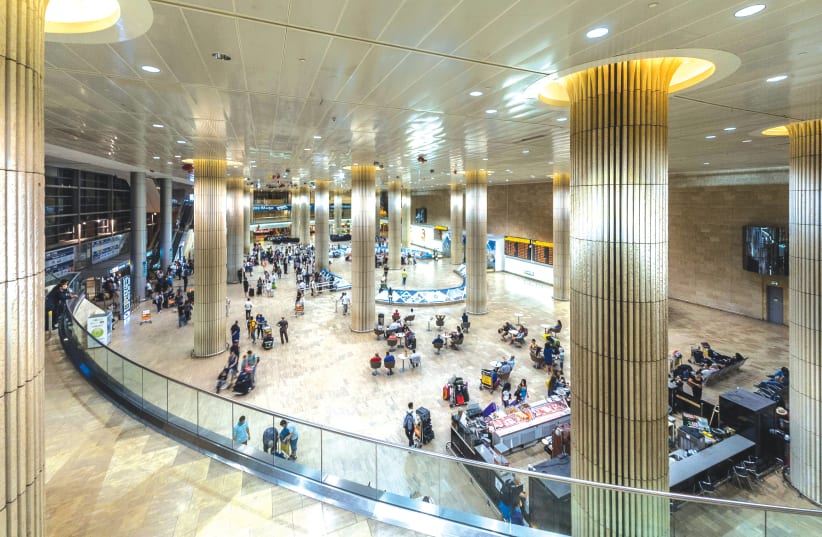According to the survey, 94.4% of tourists ranked their visit to Israel as good to excellent, with 51.6% of those asked having stayed in a hotel or holiday village. Excluding flight costs, NIS 23 billion was generated in revenue from tourism, with an average expenditure per tourist of 2,424 as part of an organized group and $1,079 per stay for an independent tourist
Approximately 44% of those tourists have visited Israel at least once, with Jerusalem being the most visited city (80.3%), followed by Tel Aviv-Jaffa (74%), the Dead Sea (52.3%) and the Galilee region (36.1%).
The average age of tourists entering Israel was 20.6% of tourists aged 24 and under, while 21.3% were between the ages 25-44, 33.3% between 45-54 and 24.8% aged 55 and over.
More than half of the tourists visiting Israel were Christian (53.9%), while just over a quarter were Jewish (25.6%), and approximately 1.4% identified as Muslims.
In terms of the purpose of their visit, 29.4% of respondents said they visited for relatives and friends, 25.2% for touring and sightseeing, 18.8% for pilgrimage purposes, 14.2% for recreation and leisure, 8.3% for business and delegations, and 4.1% for other purposes.
The average length of stay was 10.2 nights.
Israel Tourism Ministry Director-General Amir Halevi: “2019 was a record year that established the fact that tourism is a very significant economic growth engine for the Israeli economy. This is the reason why the crisis this year is extremely severe, when all those involved in tourism have moved from high-intensity activity to zero."
"The survey statistics teach us a lot about the tourism market as it was, but there is no doubt that the world of tourism has changed and we as a ministry and as an industry must prepare for change and adapt our activities for the day after the crisis. We wish for a new year that will see the beginnings of a return to normal, a year of health and rehabilitation for the tourism industry.”
